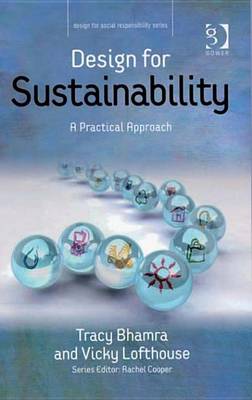Design for Social Responsibility
1 total work
Design for Sustainability is a practical approach to design which focuses on the challenges and issues faced by those designing consumer products in the 21st Century. It is written from a design perspective and aimed at both professional and student industrial and product designers, and those involved in managing design.
The book begins by summarising the historical and current issues of the environmental debate in the context of sustainable product development, highlighting the benefits gained from considering the impact on the environment and issues of sustainability when designing. The authors answer the questions: What is sustainable product development and why is it important? What are the main drivers of sustainable product development? They explain how design can help to control human impact on the environment by not only minimising pollution, waste, energy use and use of scarce resources, but also by thinking outside the box to create systems and services that can reduce the number of products manufactured. The aim is to put sustainable development within a commercial context and introduce a new focus for design.
Design for Sustainability outlines and assesses the methods, tools and techniques available to designers, both for design innovation and design improvement. A wide range of case studies are presented across a number of product sectors including electrical goods, IT and furniture. Initially they demonstrate product improvement and redesign, examples include those that reduce waste, pollution and energy consumption, designing for recycling and reuse of parts. Further examples are then provided exemplifying the more radical approach of system and service design.
The final section takes the reader through a whole sustainable design project from start to finish, from brief to manufacture. References and sources of information are also included.
